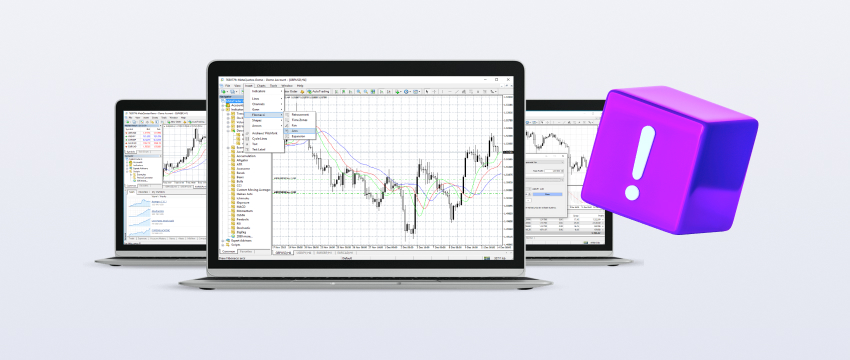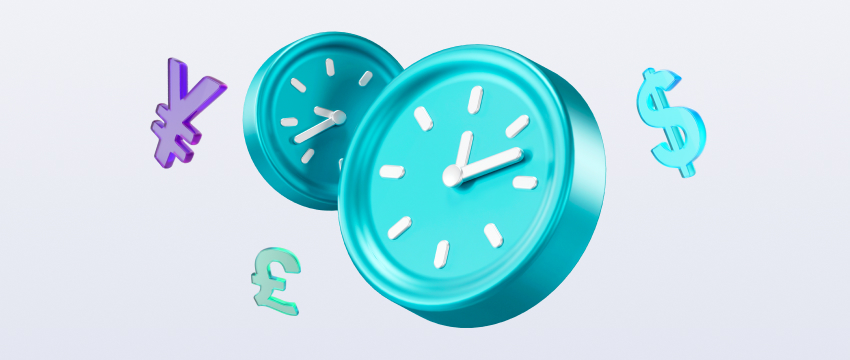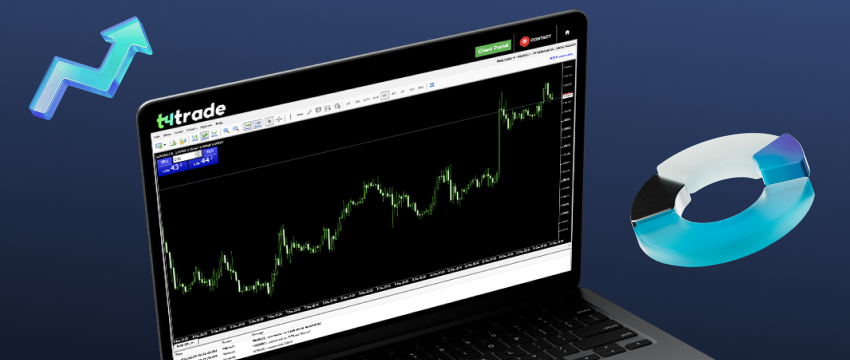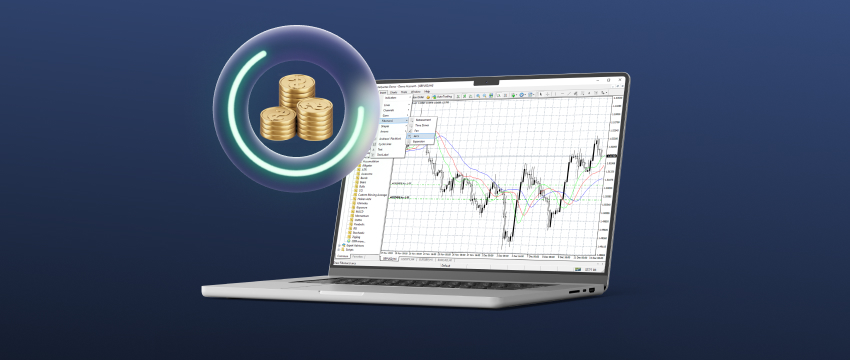Many traders talk about their first forex trade and how they jumped in full of confidence. Only later did they realise they had made a big mistake.
All traders have their own stories to tell. Most have at least one “horror story” about a trade that went terribly wrong.
Such mistakes, however, especially beginner mistakes, are formative and shape traders’ experience, helping them learn their lesson, despite the embarrassment.
Forex trading with no plan
Very often, traders recall their first forex trade as an impulsive “I want to prove myself” experience. This is the opposite of being organised, calculated, and prepared.
It often goes like this: A trader sees their favourite currency pair rise quickly. They feel the sudden urge to trade without a strategy, entry or exit plan, or risk management.
What happens after? The market, as the story goes, turns against them within minutes and the trader has no idea how to react.
“Do I hold? Do I close?” “Should I double down?” The market doesn’t always behave the way we want. Without risk management and a plan, everything can come crumbling down.
The lesson is that all traders, beginners or advanced, must have a plan with clear entry and exit points. They should also know how much they are willing to risk and under what conditions they will admit a mistake.

Risking everything on one forex trade
“Go big or go home,” as the American saying goes. But this slogan doesn’t apply to trading, as it exposes you to huge risks.
It won’t be the first time that we have heard a trader putting almost 20% of their trading account on a single trade. And for what reason?
Focusing on rewards and ignoring potential outcomes, good or bad, can lead traders to misjudge the situation. They may have high expectations while risking more than they should.
While they are thinking of doubling their potential profits, what they actually end up with is halving their accounts. Shame, but it is the harsh reality.
Most experienced traders avoid risking more than 1–2% of their capital on a single trade. Even if they make a mistake, it won’t cost them dearly or knock them out of the game.
Everyone wants to win big. But sometimes, it’s better to make small, consistent profits than chase big gains and risk losing everything.
If you blow your account, making a comeback becomes very difficult. You may feel ashamed or disappointed, and might even give up trading.
A big percentage of beginners tend to abandon trading, as they have great expectations and make irreparable mistakes, and are unable to put any more money or time into it.

Emotional forex trading
It’s not unusual to meet traders who admit to emotional trading. They let anger, jealousy, stubbornness, or greed take over.
We’ve all been in situations where we don’t want to admit we are wrong. Sometimes we base decisions on what other traders might think or say.
A trader might avoid closing a trade because they are stubborn and think things will change and there will be a reversal and they stay longer and longer watching their losses increase instead of just simply closing the trade.
Always remember that you don’t have anything to prove to anyone, and being disciplined means that is ok to admit you are wrong. No trader is “right,” all the time, and also right or wrong should not even be part of your decision-process.
You should prioritise managing your risk e following your plan and not being right. Avoid emotions at all costs. Take a break and move away from your screen if you sense you are feeling overwhelmed.
Don’t ignore losses
This is not the first time, we heard a trader say, stop losses are for quitters.
Traders sometimes believe that the market’s direction will change, and they avoid locking in a loss and instead leave their trade open with no protection.
O market moves against them, and they amass more losses than if they have just placed a stop loss. A stop loss is not a weakness but is there to protect your funds. Every experienced trader uses a stop loss, and so should you.
Forex leveraging beyond control
Traders often ask how much leverage they should use in a trade, and the answer is always, as much as you can handle.
Trading with more funds than you actually have can be tempting. But using borrowed funds can quickly backfire, magnifying your losses.
We’ve often seen traders use maximum leverage on their first trade. Many end up suffering huge losses.
For example, a small 20-pip move turned into a shocking hit to their account. Always use leverage carefully and don’t use it because it is there and available, but only use it strategically and when the time is right.
Don’t fully get it, but I will trade it
News can move the markets, but you should not trade the news if you don’t fully understand it.
For example, traders may hear that the Non-Farm Payrolls (NFP) release is important. They feel they must act instantly, buying before the announcement and selling at the peak.
But what happens when the market goes the opposite direction? Trading around big news events is often very risky because of the volatility as spreads become wider and slippage increases.
Copying traders and what others are doing
One of the “first forex mistakes I’ve made” and we’ve heard this millions of times, is doing exactly what other traders are doing blindly and without putting any thought into it.
Just because an experienced trader is buying GBP/USD, that doesn’t mean that you should too. While it is ok to learn from others and follow their lead, you should never copy a trade unless you understand the reasoning behind it.
Making big money quickly
O first forex trade for many was all about making fast cash, and, lo and behold, that didn’t end up that way.
Everyone has this illusion when they first get started that forex is easy and it only takes a few trades to make money and abandoned your 9-5 job.
We’ve all dreamt of hitting the jackpot, but, unfortunately, forex is not gambling or a lottery ticket. Forex trading is more like a “boring” job. It requires hard work, research, long hours, and a serious approach.
If you want to avoid these forex mistakes, all it takes is keeping a journal, investing in your education and practising your skills, while cultivating a healthy mindset and managing risk.
It may sound like a lot, but progress comes slowly, step by step. Forex is not a path to quick riches; it’s a journey where mistakes happen, but learning from them and staying committed helps you overcome obstacles and remain in the game long-term.
Isenção de responsabilidade: Este material destina-se apenas a fins informativos e educativos e não deve ser considerado como conselho ou recomendação de investimento. A T4Trade não se responsabiliza por quaisquer dados fornecidos por terceiros referenciados ou hiperligados nesta comunicação.




